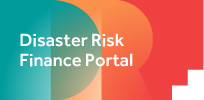IMF Resilience and Sustainability Facility (RSF)
Published by Olajide Oyadeyi on
IMF Resilience and Sustainability Facility (RSF)
Provide longer-term financing to strengthen economic resilience and sustainability by (i) supporting policy reforms that reduce macro-critical risks associated with climate change and pandemic preparedness, and (ii) augmenting policy space and financial buffers to mitigate the risks arising from such longer-term structural challenges.
Provided by
Coverage
Instrument type
Eligibility
All PRGT-eligible low-income countries, small states (population under 1.5 million) with per capita GNI below 25 times the 2021 IDA operational cutoff, and all middle-income countries with per capita GNI below 10 times the 2021 IDA operational cutoff.
Eligible countries requesting access to the RSF need:
High-quality policy reforms addressing the long-term structural challenges of climate change or pandemic preparedness.
A concurrent IMF-supported program with upper credit tranche quality policies (UCT program). It can be financing or non-financing and must be under one of the following arrangements: SBA, EFF, PLL, FCL, SCF, ECF, PCI or PSI. Emergency financing facilities (RFI, RCF), SMP, or SLL do not qualify. There should be at least 18 months remaining in the accompanying UCT program.
Sustainable debt and adequate capacity to repay.
Intended for disaster response
Available to
Contact
For further information, please contact:

